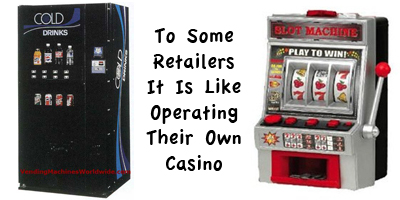Archive
There Is No Honor Among Thieves

I can remember it like it was just yesterday. “Everyone is stealing from me the suppliers, the employees, the customers and even my family, hell the Rabbi himself would do so if I gave him a chance “. These words have been lodged in the back of mind for years but every now and then something happens to me at work or I remember something that Uzzi said that was spectacularly selfish or ignorant which reaffirms my hope that all bosses are not like him.
It was one of the Apostles, in this case Peter, who vented those fatalistic words to me one day because he had just stumbled upon another incident of a supplier’s employee shorting one of his families stores bread deliveries. “See he said every one of them is a thief” Peter raged on to the point of almost bursting a blood vessel. He was making this statement to me at the same time that he was emptying all of the bills and coins from the soda machine which was out front of one of his families supermarkets. Like some retailers or operators of establishments with vending machines they come to see these things as an opportunity to supplement their already ‘strained’ incomes by putting a little coin in their own pockets. The tactic is simple, as are they, in that one takes product like sodas from their own store and then put these items in the vending machines that are located on the stores premises. Once a week or so the owner, or a trusted employee, will empty, read loot, the vending machine(s) of their money. Later another employee will fill up that same machine with more product. The money that was taken from the vending machine let’s just say probably never gets added to the stores sales for that day. These types of retailers might say that the more vending machines the more tax-free income there is for the family to share in. For some particular reason the word hypocrisy came to mind as I thought about Peter’s rage over the bread vendors delivery shortage on that particular stores order as he looted the vending machines.

When cigarettes used to be sold out of vending machines in stores some unscrupulous retailers considered this the mother lode of tax-free cash. I believe that in some states the price of a pack of cigarettes was over $4 before laws were enacted forcing these machines of death to be removed from the sales floor. However prior to that I remember the Apostle Peter removing over $100 a day from one of these machines. Granted the retailer had to pay the cost of the carton of cigarettes that went into those machines put heck that was just inventory costs on the books so to speak. When you are talking about taking $100 per day of off the books income out of a vending machine then this theft can add up to some serious money – roughly $25,000 per year from one cigarette machine. If the machine was located in a high traffic area then the annual no-tax take could be even higher.
The list can be quite lengthy when it comes to the assortment of vending machines that can generate that oh so loved no-tax income. There are machines that dispense gum, candy and small plastic toys. Have you ever seen one of those claw machines with the mechanical arm that children play to pickup a stuffed toy? Those types of machines might seem ancient compared to the variety found in supermarkets today however the amount of cash that they can take in is still substantial. Now we have postage stamp machines in stores. Have you checked the price on postage stamps lately? There are, in some states, instant lottery scratch off game machines. Video DVD and game rental machines and so much more. Granted the trend in the vending machine industry is to also allow a customer to pay for these purchases with a credit card however the ones that only accept cash are king in some retailers eyes.

Depending on the type of store ownership, independent or chain, of a particular supermarket there are numerous vendors who deliver products to it on a daily or weekly basis. Some supermarket industry statistics suggest that there can be mistakes on anywhere from 10 to 20 percent of these delivered orders. These mistakes can include shortages of products on an order, paperwork or invoiced quantities versus the actual number of products delivered, as well as mistakes in the amount a store is charged for a particular product. In supermarket industry terms we call this shrink. Supermarket shrink is composed of many components and some of these are not related to delivery shortages or overcharges. In fact, like I have stated before, I could write a post just on shrink in the supermarket industry but it is too esoteric of a topic for this post.

At the beginning of this post the Apostle Peter had raged on about the bread vendor who was stealing from one of his families stores, actually like most of the these bellicose blow hearts they married into the business so I guess the relationship is more like a business-in-law, anyway what actually happened is that the delivery driver shorted the store 2 loaves of white bread and 3 loaves of wheat bread on a delivery. Whether the route person made a mistake or was so desperate to feed his family that he needed to steal 5 loaves of bread is beyond the screed that I am writing here on this post. It was a shortage that is for sure and most stores normally have an associate whose responsibility is to verify all incoming deliveries of products. In my years in the supermarket industry I have met delivery people who are thieves as well as some who are in such a hurry to get on to the next stop that they make sloppy mistakes. Does stealing occur at the proverbial back receiving door of a supermarket? Yes it does. That is why there are or should be physical barriers as well as operating procedures to maintain the integrity of the store receiving process from a piece count standpoint. If delivery drivers are constantly coming up short on deliveries than that particular company should be contacted and relief sought from this type of poor customer service. My point here is that if a delivery person is allowed to short a supermarket on a delivery from a product quantity standpoint it is the fault of the store’s staff and possibly its management for not exercising best industry practices during the product receiving process. As someone once said to me locks on things are there to keep honest people honest. The Apostle Peter just did not get it. In his zeal to cut corners and put more money into his own pocket he decided that using standard receiving practices was something that he did not have to follow because after all he was just like Uzzi in that he knew best and everyone was stealing from him.

Did you know that employee theft can also include actions by the owners of the supermarket itself? Yes it can and the argument that it is their company therefore they can do what they want to is an operationally ignorant statement. Lead by example is the point that I wish to convey in this part of the post. As an aside the action of taking product off the shelf with out paying for it also applies to managers at chain owned stores as well – it is wrong. Employees look to their bosses and supervisors for examples on how to behave, in essence they look to see what the standard is in an organization. The argument can be made that businesses, like schools, can not be the parents to young people and there is much credence to that statement. So one can be “old-fashioned” and bury ones head in the sand and say that it is not the supermarkets responsibility to teach things like not to steal to their employees. Yes the parents should have instilled these values to their children at home. However store owners and management can have a more realistic perspective on this issue which is lead by example then discipline as the circumstances demand. Obviously I am directing the thrust of this part of the post to employee theft as it pertains to younger workers. The issue of older workers that steal will not be covered in this post so do not even think of taking me to task for being soft on store theft. In my opinion older employees have been around the block and on the street so to speak and therefore should be terminated in the vast majority of cases. Theft is not acceptable by anyone of any age or demographic group.
So to continue with this post I ask the question what is a younger employee to think when they see a manager or owner simply take something off the shelf and consume it or take it home? The employees know that their store has company policies on theft and consuming unpaid for products at work, usually this is stated in the employee or associates handbook, but this behavior by people in positions of responsibility can send the wrong signal to younger workers. Earlier in this post I regaled the reader with the quote about locks keeping honest people honest so my point here is that by leading by example the correct message is sent to all store associates – no product may be taken unless it is paid for. Managers and owners should never take something from a store shelf without paying for it under any circumstances. The attitude that I own it therefore I can take it makes absolutely no sense in the operation of a retail establishment and if you see this approach used by someone like a Uzzi or Apostle Peter one should not be surprised by the increase in younger employee theft. No I am not condoning any form of theft by younger or older employees. I am suggesting that everyone should act responsible whenever they are supervising others. Let’s send the right message to all store associates that taking something without paying for it is wrong. As store managers and owners we have responsibilities to ourselves, our employees, our customers and our families.

Back in the day a customer might sample a grape or begin to eat candy out of a bag then upon completing their shopping trip they would hand the bag to the cashier who would ring up the item. Well today some of that still goes on except the customer might sample an olive from the olive bar of course they just do that to make sure that the olives are okay – yea right. Perhaps they might sample a piece of fruit or a vegetable from the salad bar. This is part of the nature of food shopping. Sometimes a young child might have taken something off the shelf and put it in their pocket however when the parent found out about it they disciplined the child – hopefully they did anyway.
Unfortunately today there are customers, and I use that term loosely that just flat-out steal things. Some might be labeled as individuals with some sort of personality disorder however they are still thieves. I remember standing in line at a Starbucks in a upper middle income town one day and watched a woman in a fur coat lift a couple of CD’s off of a rack and put them in her purse. When I got to the counter to order I mentioned to the order taker what I had just witnessed and their response was wow she is in here all of the time but we will keep an eye on her now.
In the supermarket industry we see customers steal Health and Beauty products like deodorant, razor blades and shampoos on a regular basis. That is why some of these products are sometimes available for purchase from only behind a customer service counter. Having been through good and bad economic times I know that some people steal from stores no matter what the stock market is doing. Whether the shoplifter has a head full of bad wiring or they just do not know the difference between right and wrong theft is wrong and dealing with it is part of the challenge of doing business with the public.

Where the industry fails on the shoplifting problem is that they do not have a consistent policy on bringing charges against shoplifters or being proactive with law enforcement organizations to deter it. Some retailers take the approach that it is too expensive to prosecute shoplifters. The retailer has to dispatch the employee(s) who were involved with catching the thief to court on the appointed date. When they go to court the case seems to be postponed multiple times. Finally when the offender’s case is prosecuted the sentence is usually very light. Yes the retailer can and usually does ban the shoplifter from returning to their store. Also the industry as a whole employees a database of shoplifters that have been caught in stores that they can share with participating retailers however this service is usually used for pre-employment checks. The main point here is that the shoplifters who are caught are seldom prosecuted and if they are the sentences are relatively light. Can the retailer change the legal system so that the courts take these crimes more seriously? Probably not. However they can let prosecutors know just how serious of a problem that this is in the community and these thefts are not just nuisance crimes to be swept aside. If the local police officer seems indifferent to do something with the shoplifter that has been caught in the store then talk to their supervisor. Call your local community police liaison officer and raise objections to the way your situation was handled. Just like the leading by example that I wrote about earlier in this post supermarket managers and owners have community responsibilities when it comes to store theft as well. While it might seem a frustrating experience to deal with this issue in your community remember that change has to start somewhere. Eventually more in the community will support your efforts.
The general public should know that the industry’s trade associations, FMI and NRF, have lobbied hard to have organized theft rings be a focus of the major law enforcement agencies however what I am referring to here is theft by the single habitual thief who seems to pretty much get away with stealing for a variety of judicial reasons. Improving a stores internal and external anti theft procedures coupled with a fair and equal application of enforcement policies along with a constant effort to make law enforcement professionals support retailers in the community is the best solution available for retailers today.
Sorry no stories of Rabbi’s stealing anything from the local supermarket.
Look for a post on the Apostle Peter’s and Uzzi’s family shopping spree behavior that perpetuate the “it is my store so I will do what I want to do” syndrome sometime in the future right here on the Supermarket Stories blog.
AB
Copyright 2010 @ Supermarket Stories
Recent Posts
Categories
Archives
- November 2010 (2)
- October 2010 (10)
Calendar of Posts
| S | M | T | W | T | F | S |
|---|---|---|---|---|---|---|
| 1 | ||||||
| 2 | 3 | 4 | 5 | 6 | 7 | 8 |
| 9 | 10 | 11 | 12 | 13 | 14 | 15 |
| 16 | 17 | 18 | 19 | 20 | 21 | 22 |
| 23 | 24 | 25 | 26 | 27 | 28 | 29 |
| 30 | ||||||